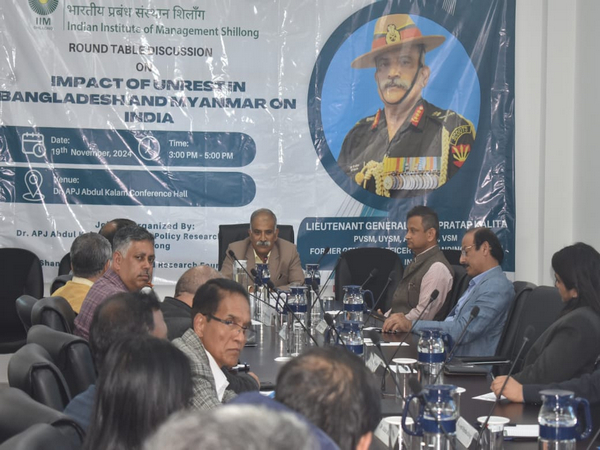Regional Instability: Navigating Challenges at India's Borders
The APJ Abdul Kalam Centre, in collaboration with the Shankardev Foundation, hosted a round table examining the impact of unrest in Bangladesh and Myanmar on India. The discussion focused on border security, socio-economic development, and regional stability, with insights from Lieutenant General Rana Pratap Kalita. Experts emphasized integrated strategies and international collaboration.

- Country:
- India
The APJ Abdul Kalam Centre for Policy Research and Analysis, partnering with the Shankardev Education and Research Foundation, hosted a critical round table this Tuesday. The session, themed "Impact of Unrest in Bangladesh and Myanmar on India," was graced by Lieutenant General Rana Pratap Kalita, former General Officer Commanding, Eastern Command, Indian Army. Kalita provided a detailed examination of the challenges India faces due to the ongoing unrest in neighboring nations.
The discussions primarily revolved around the multi-faceted consequences of regional instability on India's national security and socio-economic growth. Lieutenant General Kalita's address underscored the intricate nexus between geopolitical security concerns and economic issues, as shaped by his extensive experience in military operations in the region.
Attention was drawn to the geographical complexities of India's Northeast Region (NER), which shares 99% of its borders with five other countries. Key issues such as immigration, drug trafficking, and the implications of the India-Myanmar Free Movement Regime were identified. However, opportunities like the India-Myanmar-Thailand Trilateral Highway project, promising economic transformation, were also highlighted.
Essential to border security are the pro-active measures to counter terrorism and drug proliferation. The discussion further highlighted the vital role of civil society in ensuring and monitoring security as well as promoting welfare, particularly in health and education sectors.
In his concluding remarks, Lieutenant General Kalita emphasized a balanced approach towards security and development. He called for a coordinated response from governmental and international bodies alongside civil society to secure long-term peace and ensure sustainable regional development.
This roundtable successfully created a collaborative platform for experts and policymakers to discuss solutions for India's Northeast. It reinforced the necessity for integrated strategies and international partnerships to maintain the region's security, stability, and prosperity.
(With inputs from agencies.)










